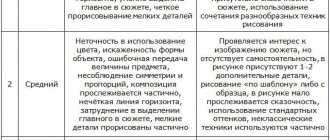What is analytical thinking
A person is endowed with several types of thinking, but one always prevails over the others. Analytical thinking is consistent. People prone to it process a large block of information, dividing it into main parts and examining each component step by step. To do this, they must also have developed logical thinking.
Analytical thinking involves searching for new information, studying and systematizing it, as well as conclusions drawn based on the data obtained.
This type of thinking requires facts, detailed elaboration of the issue, emphasis on detail, the ability to compare data and draw conclusions. When we talk about a mathematical mindset, we mean precisely a penchant for analytical thinking.
A person with an analytical type of thinking should be able to:
- Collect the information;
- work with large amounts of data;
- divide general information into component parts according to certain criteria;
- compare data and find relationships;
- objectively evaluate information;
- think logically;
- express thoughts consistently;
- work with facts;
- set priorities correctly, separating the main from the secondary;
- think critically (question the information received);
- look for alternative options;
- draw conclusions.
Determine your priorities
To train your thinking speed, use the practice of prioritizing. Everything you deal with, come into contact with, surrounds you, you can rank from important to optional and useless. The habit of ranking structures your personal information space.
Just as it is easy for you to find the things you need where they are located in a certain order known to you, it will be easy for you to find the information you need to make a decision. Although this recommendation is hardly a developmental exercise, following it means preparing your brain in advance for quick decisions.
How analytical thinking is useful
Well-developed analytical thinking allows you to timely and effectively cope with even the most complex task and find several possible options for solving it.
A person with predominant analytical thinking makes thoughtful and informed decisions, knows how to plan and make forecasts of his activities.
Employees endowed with such qualities are highly valued in companies. In any professional field, the ability to quickly find a decent way out of a difficult situation will be an advantage. By the way, this ability is useful in everyday life.
Speed alphabet
Place a piece of paper with the letters of the alphabet in front of you. As quickly as possible, come up with 3 words starting with each letter of the alphabet: three words starting with “a”, then three words starting with “b” - and so on until the letter “i”. Gradually increase the number of words you need to come up with up to 10.
Currently reading: Halo effect in psychology
To make this exercise more challenging, use a stopwatch again. Measure how long it takes you to find 30 words. Then try to reduce this time by speeding up the pace of the task.
Speed of thinking
How to develop analytical thinking
Analytical thinking can be trained and developed.
Solve logic problems
Logic is important for analytical thinking. If this is your weakness, then start training. Choose simple problems first, gradually moving towards complex ones.
Solve Math Examples
Find a math textbook and remember your school days. Choose complex examples that involve variables.
Solve crosswords
And when you have hundreds of solved ones behind you, try to compose your own. It's quite difficult.
Solve puzzles
Solve puzzles, solve riddles, or try solving a Rubik's cube.
Play chess
Find your opponent and remember the rules of the game. Chess is an excellent trainer for analytical thinking.
read books
You can choose detective stories, for example, about Sherlock Holmes, fiction or specialized literature. Ask questions: why did the hero act this way in this situation, what else could have been done?
Analyze situations from everyday life
Train critical thinking, doubt, look for facts and new information when watching the news or reading a book. Pay attention to details, look at things from a new angle and look for non-obvious relationships between a variety of objects, compare facts.
Learn something new every day
Pick a topic that interests you and find one fact about it per day.
Look for alternatives
Don't stop at one solution to the problem - look for more. Think about what you might have missed, process the information several times and draw conclusions.
Participate in discussions
Discuss books, films, historical events - whatever you want. You will hear the opinion of another person and will be able to share yours about the same event, give arguments and practice sequential presentation of thoughts. Ask your interlocutor for feedback: let him tell you how convincing your arguments were and how consistent your thoughts were.
Ask yourself how the objects around you work
Ask yourself questions about the things around you or the situations you encounter. Why does this happen, how does it work, why does it happen? Answer them, but don't look for easy ways. Understand the problem and give yourself a comprehensive answer.
Create a mind map
A mind map, thought map, or mind map is a way of visualizing the thought process. The mechanics are simple: you have a key idea that you put in the very center of the card. Let it be “Development of analytical thinking.” To it you add elements related in meaning or significance, for example: development methods, difficulties, reasons - everything that seems important to you. Then you supplement the map with new associative rows from each element. And a picture of your thought process appears in front of you.
jean-louis zimmermann/flickr.com
You can create such a map on a computer, phone or tablet using special tools. But you can also take a regular sheet of paper (be prepared that there may not be enough space).
Write down
Keep a diary in which you write down your goals, ways to achieve them and results. Work on mistakes if the goal was not achieved. Look for reasons and analyze.
Simulate situations
Think of any situation where there is a problem and try to fix the problem. Develop an algorithm of actions and don’t stop at one solution - look for more.
Do brain exercises every day - most of them don't take much time and don't require special conditions. You can develop analytical thinking if you practice regularly and set yourself challenging tasks.
Not each of us is able to make decisions with lightning speed and provide answers to sudden questions. To do this, you need to know how to develop quick thinking and learn to respond adequately to situations presented by life. Sometimes there is simply not enough data to react correctly. What to rely on in this case? Developed intelligence will help you get out of almost any situation, but it needs to be constantly trained.
What is thinking and why do we need it?
«Thinking
is the highest function of the human psyche. It allows people to use data that is inaccessible to ordinary sensory organs,” Alexander Gerasimov.
A person with a sharp mind, sharpened for quickly solving problems, acts according to the following scheme:
• Assess the situation; • Determines possible options for his behavior; • Imagines several scenarios for the development of events; • Selects the optimal reaction: what to do or say.
Why are some people able to think and act quickly, guided by circumstances, while others are stunned by a banal everyday task? It's all about intelligence.
The mind, like muscles, needs to be pumped. If you have sufficient quick thinking, you will mentally calculate in advance all the options for your behavior and possible consequences. In the absence of such a skill, when faced with the need to urgently resolve any issue, you will resemble a person who has never played sports, but is suddenly faced with the task of running a marathon. It is difficult or simply unrealistic to do anything serious without preparation.
“Slow thinking is like underdeveloped muscles,” NLP trainer Alexander Gerasimov.
If your mind is trained, you can instantly recall the necessary skills, knowledge and solve the problem in any situation. Developed intelligence makes a person think in three directions:
• Internal visualization; • Internal speaking; • Internal listening to yourself, your emotions, feelings.
Now - in more detail about each point.
Visualization
- the ability to imagine within oneself a mental map of a situation with blocks, logical connections and, at the right moment, methodically, point by point, extract it from memory and produce the result. A person who has already understood how to speed up thinking can productively use his skills when answering an exam at the institute or arguing his position in negotiations with business partners.
Pronunciation is closely related to auditory memory. It, like the visual one, needs to be improved. Then you will be able to clearly and calmly give out the information you listened to earlier: retell a passage from a lecture or reproduce any information.
It is equally important to learn to instantly analyze your own emotions received from the situation. Sometimes they are the key to the solution. Intelligence will definitely force its owner to listen to his inner voice. If tension emanates from him, the person’s reaction will be immediate: he will express unexpected arguments in the discussion or end the meeting.
All these components of fast thinking can be extremely simplified into a short triad formula:
• See; • Hear; • Feel.
The triad is important for understanding how to speed up the thought processes in your head and learn to get out of any situation with dignity. These skills are available to everyone. You just need to set a goal and start systematic training, which includes three stages:
1 Preliminary level - awareness of the need, studying information, signing up for a group. Level 2 Student (training) - playing test situations with a friend, spouse, child. Level 3 pro (practice) - applying skills in life, successfully solving real difficult situations.
A person who has gone through all the stages will learn to quickly make a choice from dozens of probable options for the development of events. The effect may sometimes be unexpected for him and those around him, but the decisions will certainly be optimal and balanced.
Train your quick thinking!
In the games of the Cheerful and Resourceful Club there is a competition for team captains, when one person must give an original and witty answer to a question in a matter of seconds. Spectators wonder how they do it: maybe a special gift from nature or a pre-rehearsed show? The answer is simple: this is a clear demonstration of upgraded thinking.
Avid KVN players say that the best improvisation is one of hundreds of homemade preparations recalled from memory at the right moment. Participants in the games constantly practice answering questions wittily, and there comes a time when this begins to happen automatically. In those moments allotted for thinking about the task, hundreds of previously played scenes flash through the participant’s head, and a new unexpected combination is born from the existing experience.
Fast thinking is not only the use of “homemade preparations”, but also the ability to create something new on their basis that meets immediate needs. Learning how to speed up thought processes is important for KVN players and all people. The recipe called “home preparation” can be used in any situation that requires a quick and correct reaction: from business negotiations to an unexpected meeting with hooligans in a dark alley.
«Intelligence
“is the ability, in an unusual situation, to combine previously acquired competencies into a non-standard configuration in order to give an unexpected answer that you were not taught,” according to Alexander Gerasimov.
In a stressful situation, developed thinking increases the likelihood of its successful resolution. A person with improved intelligence has a better chance of getting out of the above-mentioned situation with hooligans with honor. He will not save or worsen his situation, but will instantly react with a phrase or action that is not expected from him, but which will have the desired effect.
Such a person will take into account everything: the level of intelligence of the people with whom he has to interact, their feelings and weaknesses, his previous experience, personal or adopted from outside. Based on this and other data, he will make the optimal decision. When viewed from the outside, such a lightning-fast reaction may seem spontaneous and ill-considered, but it is not so.
High speed of decision making is also the result of targeted mental training. To a person who has learned how to develop quick thinking, the correct reaction in a difficult situation will not seem like fantastic luck. He created this natural miracle for himself, training his intellect over several weeks or years.
What helps increase the speed of thoughts
__________
Everyone's thinking speed is different, and it's not always realistic to achieve what you want when you see how quickly and easily someone else does a task that takes you a long time. But it is quite possible to increase the speed of your thinking. This is facilitated by:
1) Facial gymnastics. When the face is not kneaded, the face is “cold”, thoughts are confused, words are difficult to find. If the face is stretched, the head works much better, faster. This is effective!
2) Speed of eye movement and ease, speed of facial movements. Wean yourself from walking around with a sour, lethargic, expressionless face and sleepy eyes, it not only doesn’t make you look good, but also kills your brains. If you have trained your face to be lively, your thinking will become more lively.
3) Selection of templates, collection of algorithms. Look for solutions, memorize, collect a collection of solutions and algorithms.
4) High internal tempo. Internal tempo is your overall internal speed. Unwind your inner motor and the speed of all your internal processes will increase.
5) Head massage. During the shower, when jets of water vigorously massage the scalp, the functioning of the blood vessels in the brain instantly improves and a lot of great ideas immediately come to mind. And if you finish your shower with a douche of cold water, your whole body becomes alert and alive, your head becomes fresh, and you will be able to think clearly for the next few hours.
6) Master auto-training and relieve fears. In particular, practice “Unconventional Actions”, train courage and develop positivity: this is really useful not only for the speed of thinking, but also in life in general.
You may be interested in an article about the development of logical thinking.
_________
Read humorous stories
Not just stories. You can also make it a rule to look at humorous drawings. A sense of humor is always associated with a high speed of response to a situation. Plus, this includes the ability to see a non-obvious contradiction and identify it in the most vivid and precise formulations. All this together represents quick thinking.
Currently reading: Negative Energy: A Zen Master Explains How to Deal with Destructive Thoughts
Don't just read or memorize witty jokes, but strive to understand what the point of the joke is, why it makes you laugh? Collecting a collection of puns will bring no less benefit to your mind. By accumulating such unusual experience of responding, you train your brain to produce something similar at the right moment.
Human logical thinking: why you need to develop logic
Perhaps some people believe that it is not at all necessary to develop logical thinking; you can do just fine without using logical connections. Such judgments are fundamentally wrong. After all, logical thinking and human activity are inextricably linked. Even in everyday life, you should have the skills to build objective chains. For example, in ancient times people were able to save lives thanks to logic and observations - if their fellow tribesman ate a berry and died, then it is quite logical that others should not eat these berries. Or, for the first gardeners and farmers, such skills were useful in order to know that if, for example, you plant a cherry pit, then, logically, a cherry will grow from it and nothing else.
We will not consider the benefits of constructing mental structures for managers or representatives of technical professions. Even an ordinary janitor understands that sweeping dust against the wind is absolutely illogical. Or the painter, using logical connections, will not begin painting the floor from door to wall.
Therefore, a person’s logical thinking plays an important role in building a successful career; logic is the key to normalizing communication between people, the ability to defend and argue one’s opinion, as well as to realize the truth and objectivity of everything that happens.
Effective online exercises for developing speed of thinking
Constantly train your gray matter. The brain is very similar to muscle mass; if you do not train it, but neglect it, then it will not work to its full potential and will atrophy. Constant training with Brain Apps will help your thinking to be fast and efficient.
- The Piggy Bank game will help you think faster, and the skills you acquire will always be useful when making purchases.
- The game “Letters and Numbers” helps develop reaction speed and logical thinking.
- The mathematical game "Operations" is useful for schoolchildren and adults. Helps develop speed of thinking along with logic.
- “Complex geometric switches” are suitable even for small children who do not yet know how to count, since the game contains elementary figure images.
Our service has prepared other exercises for you that you can get acquainted with during regular training. In your personal account you will find information and recommendations on games, as well as all your results.










